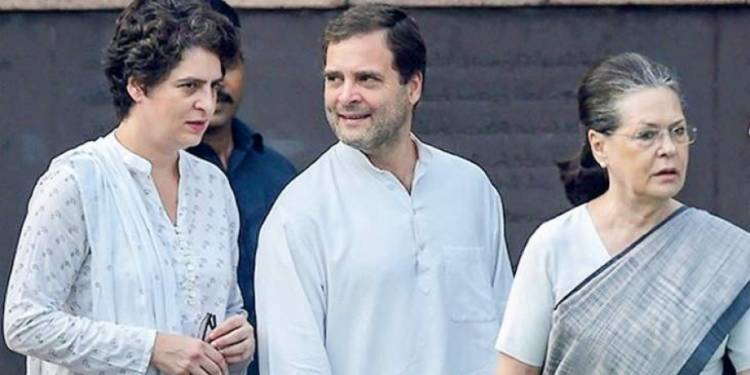Amidst rising geopolitical tensions due to the ongoing pandemic, India is now looking to step up in several domains as the sword of Damocles hangs over China. As expected, troop movement along the LAC has increased. Despite the Indian government reiterating to the contrary, this has led a handful of fringe elements to claim that India has lost ground, and raise doubts about the manner in which India is handling the situation. Surprisingly, at the forefront of these fringe elements, is a member of the Indian parliament and the scion of a dynasty that has controlled India for most part of her post-independence history.
This is not a one-off. The dynast has found himself on the wrong side of every issue pertaining to national security since the time his party was voted out. Whether it was after the surgical strikes, the air strikes or the standoff at Doklam, the dynast has consistently stood against Indian interests, batting instead for the enemy. Not only has this raised many eyebrows, it has also resulted in devastating political consequences. What was considered to be the grand old party of Indian politics for the longest time has failed to recover from the blow it received more than six years ago, as people perceive it to be unaligned with India. What continues to shock political analysts though is that despite the damage its stances have caused it, it continues to go down the same road in a steadfast manner, waiting for an opportunity to bat for Pakistan or China.
What explains this phenomenon? Why not support the Indian army and revive your pathetic image, instead of secretly dining with the Chinese ambassador? Why make your parliamentary leader delete his anti-China tweet? As they say, it’s all about the money.
If you have been a student of Indian politics long enough, you probably know by now that what is referred to as India’s grand old party is no political party. Most people consider it or call it a political party only out of politeness. It is in essence just another family business. Passed down from one generation to another, they did whatever it took to remain the market leaders. Through bribes, cuts, extortions and other manipulations, they raked in the moolah steadily. But times have changed, and much like the Yahoos of the world, this family business refused to evolve before finally going down. What we have seen thereafter is a change in the business model.
For decades, India’s enemies cultivated what were known as useful idiots. Indians by birth, this class of people was largely made up of journalists, self-proclaimed intellectuals, influencers of different kinds, academics and Communists. In exchange for perks and inducements, these individuals peddled a narrative that undermined India’s interests and functioned as the enemy’s spokespersons in India. Very often, the grand old party used their services too. However, things changed after 2014. With the defeat of the grand old party, the communists were decimated politically, the word ‘intellectual’ turned into a profanity, and journalists became the butt of every joke. The narratives that this bunch had pedaled are currently burning at the pyre.
The grand old party lost its revenue model. And for India’s enemies, the useful idiots were no longer useful. The grand old party was looking for clients, and the enemies were looking for services. Supply found demand. The grand old party assumed charge of the enemies’ various dealerships. However irrelevant the opposition might be today, to have its main member acting as your spokesperson is surely a sweet deal for the enemy. Though the grand old party’s political fortunes diminish with every passing day, this lovefest shows no signs of relenting.
For any political analyst, there is a significant takeaway. With the business model changing, especially at the cost of political fortunes, it is clear that the grand old party has accepted that it is in no position to mount a serious political challenge. With the new business model in place, it just needs to remain relevant enough to be of nuisance value.




























